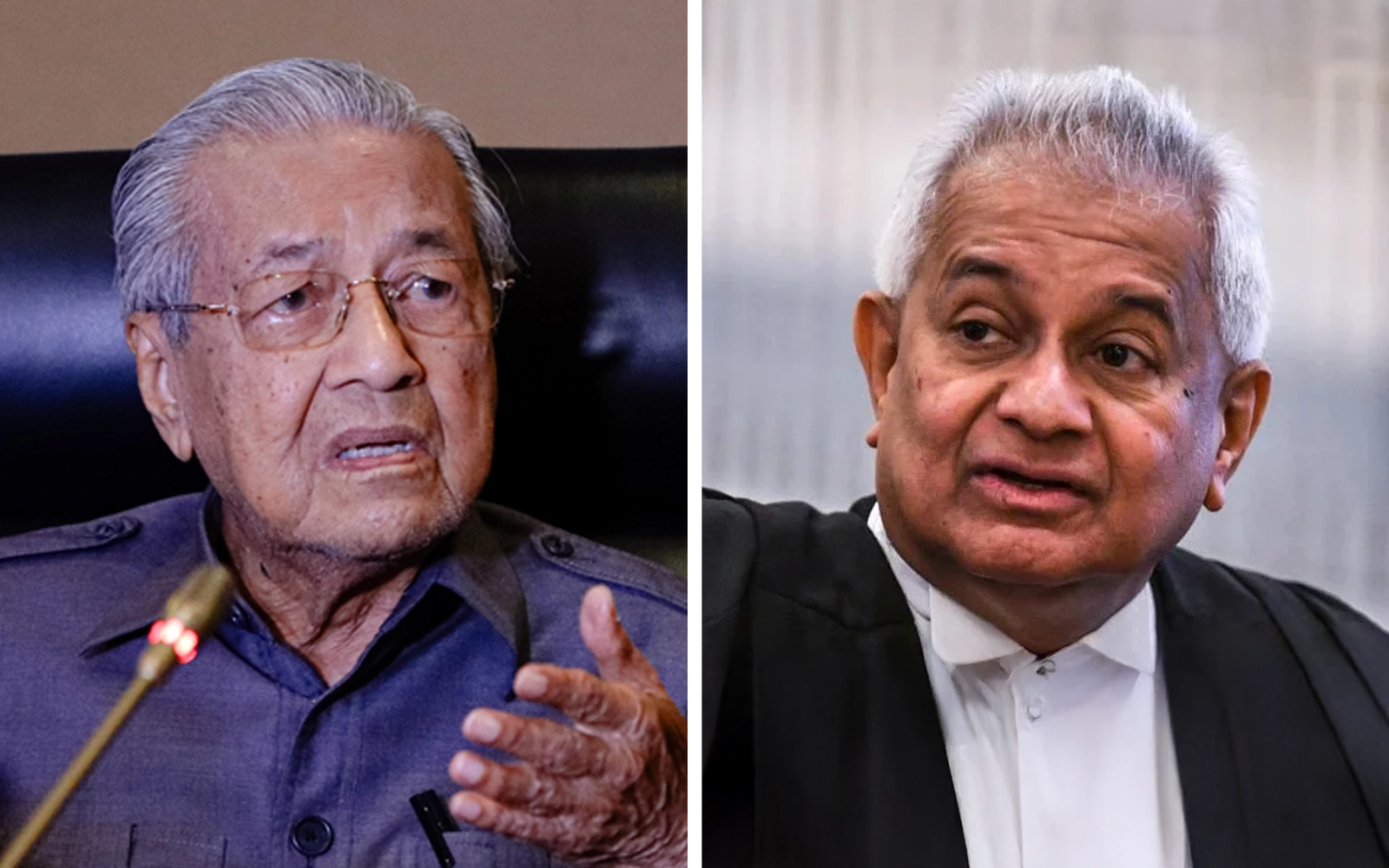
From Romen Bose
In light of recent discussions on whether Chief Justice (CJ) Tengku Maimun Tuan Mat’s 2019 appointment followed proper procedures, allow me to share some insights from my recent book, Shattered Hopes.
On May 24, 2018, shortly after the 14th general election, the Judicial Appointments Commission (JAC) proposed replacements for outgoing CJ Raus Sharif and Court of Appeal president Zulkefli Makinudin, along with other positions soon to be vacated.
The JAC recommended Azahar Mohamed as CJ, Rohana Yusuf as Court of Appeal president, and Rahman Sebli as chief judge of the High Court in Sabah and Sarawak.
However, former attorney-general (AG) Tommy Thomas, in his own book, revealed that then prime minister Mahathir Mohamad played a direct role in appointing the top judges:
“I was pleasantly surprised during my discussion with the prime minister as to Raus’s successor, when he mentioned Richard Malanjum. (Mahathir) had heard good things about Malanjum.
“We also agreed on the other three appointments: Ahmad Maarop (Court of Appeal president), Zaharah Ibrahim (chief judge of Malaya), and David Wong (chief judge of Sabah and Sarawak).”
These names had not been recommended by the JAC. Under the JAC Act 2009, the prime minister should have asked for additional names if he disagreed with the names that had been recommended, but this does not appear to have happened.
A 2022 special task force reviewing Thomas’s book later noted:
“The names submitted by the prime minister when he tendered his advice to the Yang di-Pertuan Agong under Article 122B were the names discussed and agreed upon between the prime minister and the AG.”
Worse, in the appointment of the chief judge of the High Court in Sabah and Sarawak, Mahathir never consulted the chief ministers as required under Article 122B(3) of the Federal Constitution, meaning the appointment proceeded without proper approval.
The 2019 judicial appointments
A similar situation unfolded in 2019, when vacancies again arose. The JAC, on Jan 17, 2019, recommended Ahmad Maarop as CJ, David Wong as Court of Appeal president, Tengku Maimun as chief judge of Malaya, and Abang Iskandar Abang Hashim as chief judge of Sabah and Sarawak.
On March 18, 2019, Mahathir approved these recommendations, and appointment papers were drafted for royal assent. Yet three days later, the Chief Secretary suddenly ordered their withdrawal and cancellation, indicating Mahathir had changed his mind.
Thomas later described his private discussions with Mahathir:
“The prime minister and I discussed filling the four offices. Seniority was not relevant. Our criteria were integrity, competence, temperament, independence, and a proven track record on written judgments. Tengku Maimun was the standout candidate for CJ.
“Rohana was chosen for the president of the Court of Appeal, while Abang Iskandar was the only contender for chief judge of Sabah and Sarawak. Azahar Mohamed was selected as chief judge of Malaya.”
Despite Thomas’s emphasis on constitutional safeguards, his and Mahathir’s intervention subverted the JAC’s recommendations, undermining judicial independence.
Following Mahathir and Thomas’s preferences, the JAC reconvened to propose new candidates for the top three positions.
On April 5, 2019, Malanjum recommended the following candidates for the corresponding posts:
- CJ: Tengku Maimun or Azahar.
- President of the Court of Appeal: Azahar or Rohana.
- Chief Judge of Malaya: Rohana or Azahar.
By April 8, 2019, Mahathir confirmed Tengku Maimun’s appointment as CJ and Rohana as Court of Appeal president.
Concerns about political influence
Concerns from former chief justice Abdul Hamid Mohamad and others are justified. The task force report has clearly outlined the extra-constitutional and extra-legal involvement by Mahathir and Thomas in judicial appointments.
Thomas’s role extended beyond just the selection. In his book, he says he personally informed Tengku Maimun about the government’s picks for the chief judges of Malaya, and of Sabah and Sarawak:
“I paid a courtesy call to CJ Tengku Maimun. I showed her the prime minister’s choices. She was happy with each of them, saying she could work with them, and they would be an effective team.”
The JAC was designed to shield judicial appointments from political interference.
But Mahathir and Thomas’s involvement in the appointment of the CJ and other top judiciary members would suggest there may have been serious violations of legislative procedures, raising very major concerns about judicial independence.
Romen Bose is a journalist and the author of Shattered Hopes, a book that offers an insider’s perspective into Pakatan Harapan’s short lived 2018 administration.
The views expressed are those of the writer and do not necessarily reflect those of FMT.






